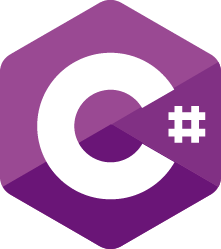
Generative Ai Consulting Company
At our Generative AI Consulting Company, we provide extensive advisory services in the realm of generative artificial intelligence
In an era where technology is rapidly evolving, businesses are constantly seeking innovative ways to stay ahead. Generative AI has emerged as a groundbreaking tool, revolutionizing industries with its ability to create, optimize, and innovate.

Your most asked queries
are answered by Our Experts about Success Stories
Generative AI Consulting Services
Our Generative AI Consulting Services
What We Offer
- Generative AI Consulting
- Generative AI in Healthcare
- Generative AI in Finance
- Generative AI in Retail
- Generative AI in Manufacturing
- Generative AI in Entertainment
- Generative AI in E-Commerce
- Generative AI in Banking
Generative AI Consulting
Our Diverse Range of Services
We are committed to empowering businesses and organizations by unlocking the full potential of generative AI. Our mission is to provide expert guidance and innovative solutions tailored to each client's unique needs and challenges.
What We Offer
Our suite of services encompasses the breadth and depth of generative AI:
- Strategic Consultation: We begin with understanding your business objectives, followed by strategic planning to integrate AI solutions that align with your goals.We provide strategic guidance to align AI capabilities with your business objectives, ensuring a clear path to success.
- Custom AI Solutions: Recognizing the uniqueness of each client, we design and implement custom AI applications, from content generation to complex predictive models. Understanding that no two enterprises are the same, we tailor AI solutions to fit your unique needs and challenges.
- Ethical AI Deployment: We are staunch advocates of ethical AI practices, ensuring that our solutions are responsible, transparent, and fair. We prioritize ethical considerations in AI deployment, ensuring responsible use and compliance with industry standards.
Industries We Serve
Generative AI has versatile applications across various sectors. Some key industries we serve include:
- Healthcare: Innovating in patient care and medical research.
- Finance: Transforming risk assessment and customer service.
- Retail: Revolutionizing inventory management and consumer engagement.
- Manufacturing: Enhancing production efficiency and quality control.
- Entertainment and Media: Creating new content and personalizing user experiences.
- E-Commerce: Personalizing customer experiences and optimizing supply chains.
- Banking: Enhancing risk management and fraud detection.
Why Generative AI Consulting is Essential for Your Enterprise?
- Competitive Edge: Stay ahead of the curve in a rapidly evolving business landscape.
- Increased Efficiency: Automate and streamline operations, saving time and resources.
- Innovation and Growth: Unlock new avenues for growth and innovation, driving your business forward.
- Expertise: Our team comprises industry veterans and AI experts.
- Customization: We believe in solutions that are as unique as your business.
- Commitment to Ethics: We prioritize the ethical implications of AI technologies.
The Benefits of Generative AI in Healthcare
This groundbreaking technology is transforming the way healthcare providers diagnose, treat, and manage diseases, making significant strides in improving patient outcomes and healthcare efficiency.
The Emergence of Generative AI in Healthcare
Generative AI, a subset of artificial intelligence, involves algorithms that can generate new, synthetic data and insights based on existing patterns and information. In healthcare, this means the ability to create highly accurate models for disease prediction, personalized treatment plans, and even generating synthetic biological data.
Key Applications of Generative AI in Healthcare
- Drug Discovery and Development Generative AI accelerates the drug discovery process by predicting molecular responses and optimizing drug formulations, significantly reducing the time and cost of bringing new drugs to market.
- Personalized Medicine By analyzing patient data, generative AI creates personalized treatment regimens, improving the efficacy of treatments for individual patients.
- Medical Imaging and Diagnosis AI algorithms enhance the accuracy of diagnostic imaging, assisting in early and precise disease detection by analyzing images more thoroughly than the human eye.
- Predictive Analytics Generative AI predicts potential health risks and disease progression, allowing healthcare providers to implement preventative measures and early interventions.
- Enhanced Patient Care:
- Efficiency in Healthcare Services:
- Innovation in Medical Research:
- Challenges and Considerations
The Future of Healthcare with Generative AI
The potential of generative AI in healthcare is vast. As technology continues to advance, it promises to further enhance patient care, streamline healthcare services, and foster groundbreaking medical research. The future of healthcare with generative AI is not just about technological advancement but about reshaping the very fabric of medical care and research for the betterment of humanity.
Generative AI represents a pivotal shift in healthcare, offering innovative solutions to longstanding challenges. Its integration into the healthcare sector signifies a step towards a more efficient, effective, and personalized approach to patient care. As we continue to explore and develop these technologies, the promise of a healthier future becomes ever more tangible.
Generative AI: Transforming Finance
Generative AI: Transforming Finance
Generative AI involves algorithms capable of creating new, predictive models based on complex data sets. In finance, this capability translates into a powerful tool for data analysis, trend prediction, and decision-making support.
Key Applications of Generative AI in Finance
- Risk Management and Fraud Detection Generative AI significantly enhances the ability to identify and predict risks, including credit risk and market risks. It also plays a crucial role in detecting and preventing fraudulent activities by recognizing patterns that may indicate fraudulent behavior.
- Algorithmic Trading AI-driven algorithms can analyze vast amounts of market data to identify trading opportunities, execute trades, and optimize investment strategies, offering a level of speed and efficiency beyond human capabilities.
- Personalized Financial Services Generative AI enables the creation of customized financial products and services tailored to individual customer needs, enhancing customer satisfaction and loyalty.
- Robo-Advisory Services AI-powered robo-advisors provide automated, algorithm-driven financial planning services with minimal human intervention, making financial advice more accessible and affordable.
- Enhanced Accuracy and Efficiency: AI algorithms process and analyze data with a level of accuracy and speed that surpasses traditional methods.
- Improved Decision-Making: Financial institutions can make more informed decisions based on AI-generated insights and predictions.
- Cost Reduction: Automating routine tasks and processes reduces operational costs and human error.
While generative AI presents numerous benefits, integrating it into the finance sector involves challenges such as ensuring data privacy, navigating regulatory compliance, and managing the ethical implications of AI decision-making.
Generative AI is not just a technological advancement; it is a catalyst for transformation in the finance sector. By harnessing its power, financial institutions can unlock new levels of efficiency, customization, and risk management. The future of finance with generative AI is bright, and the journey towards this future is an exciting and rewarding one.
The Advent of Generative AI in Retail
The Advent of Generative AI in Retail
Generative AI, known for its ability to create new and predictive data models, is emerging as a powerful tool in retail. It offers innovative solutions for personalized customer experiences, inventory management, and market trend analysis, among other applications.
Revolutionizing Customer Experience
- Personalized Marketing: Generative AI enables hyper-personalized marketing strategies, creating tailored product recommendations and targeted advertisements based on customer behavior and preferences.
- Virtual Try-On and Product Visualization: AI-powered tools allow customers to virtually try on clothes or visualize products in their space, enhancing the online shopping experience.
- Demand Forecasting: AI algorithms analyze market trends, consumer behavior, and historical sales data to predict future product demand, optimizing inventory levels and reducing waste.
- Automated Stock Management: AI-driven systems streamline inventory management, automatically adjusting stock levels and placing orders as needed.
Generative AI plays a crucial role in analyzing market trends and consumer feedback, helping retailers develop products that align with evolving consumer preferences.
Benefits of Generative AI in Retail
- Increased Sales and Customer Loyalty: By offering personalized experiences and products, retailers can enhance customer satisfaction and loyalty.
- Reduced Costs and Improved Efficiency: AI-driven inventory and supply chain management lead to cost savings and operational efficiency.
- Data-Driven Decision Making: Access to predictive analytics enables retailers to make informed decisions about product lines, marketing strategies, and store operations.
Challenges and Ethical Considerations
While generative AI offers numerous benefits, retailers must navigate challenges such as data privacy concerns, the need for accurate and unbiased AI models, and ethical considerations around customer data usage.
Future of Retail with Generative AI
The integration of generative AI is not just a trend but a fundamental shift in the retail sector. It promises a future where personalized shopping experiences, efficient operations, and data-driven strategies become the norm, offering a competitive edge to forward-thinking retailers.
Generative AI is rapidly becoming an integral part of the retail industry, offering innovative solutions to traditional challenges and opening up new opportunities for growth and customer engagement. As retailers continue to embrace this technology, the future of retail looks more dynamic, personalized, and efficient than ever before.
We take pride in our track record of successful implementations.
The Benefits of Integrating Generative AI in Manufacturing
Unleashing the Power of Generative AI in Manufacturing
Generative AI, with its capability to generate new data and models from existing datasets, is providing manufacturers with unprecedented opportunities to enhance efficiency, reduce costs, and innovate products.
Key Applications of Generative AI in Manufacturing
- Product Design and Development Generative AI facilitates the rapid design and prototyping of products. By inputting design parameters, AI algorithms can generate numerous design variations, helping engineers find the most efficient and practical designs.
- Predictive Maintenance AI algorithms analyze data from machinery to predict potential failures before they occur. This predictive maintenance approach minimizes downtime and extends the lifespan of equipment.
- Quality Control Generative AI enhances quality control processes by automatically analyzing products for defects. It can identify issues that are imperceptible to the human eye, ensuring high-quality outputs consistently.
- Supply Chain Optimization AI systems can forecast demand, optimize inventory levels, and suggest the most efficient logistics and distribution strategies, thus streamlining the entire supply chain.
- Increased Efficiency and Productivity: AI-driven processes significantly reduce production time and costs while increasing throughput.
- Enhanced Innovation: Generative AI enables the exploration of new and improved product designs, opening doors to innovation.
- Improved Accuracy and Quality: AI tools provide more precise and consistent quality control than traditional manual inspections.
The integration of generative AI in manufacturing isn't without challenges. These include the need for significant data inputs, ensuring data privacy and security, and the requirement for skilled personnel to manage and interpret AI systems.
Manufacturing with Generative AI
Generative AI is paving the way for a smarter, more efficient, and innovative manufacturing industry. As technology continues to advance, its role in manufacturing is set to grow, leading to smarter factories and more sustainable production processes.
Generative AI is reshaping the manufacturing landscape, offering solutions that drive efficiency, quality, and innovation. Its integration represents a significant leap forward for the industry, ushering in an era of digital transformation and industrial advancement. For manufacturers, the adoption of generative AI is not just an option but a necessity to stay competitive in a rapidly evolving global market.
The Rise of Generative AI in Entertainment and Media
The Rise of Generative AI in Entertainment and Media
Generative AI, known for its ability to create new, original content from existing data, is revolutionizing the entertainment and media industries. From scriptwriting to music production, and from gaming to personalized content, AI is not just a tool but a collaborator in the creative process.
Transformative Applications of Generative AI
- Content Creation AI algorithms are being used to generate novel scripts, compose music, and even create artwork, pushing the boundaries of creativity and offering new forms of artistic expression.
- Personalized User Experiences In streaming services and online platforms, generative AI tailors content to individual user preferences, enhancing engagement and satisfaction.
- Enhanced Visual Effects In filmmaking and video production, AI is used to create realistic visual effects and animations, reducing the time and cost involved in traditional methods.
- Interactive and Immersive Gaming Generative AI is transforming gaming, creating dynamic, responsive environments and characters that adapt to players' actions and decisions.
- Innovative Content AI enables the creation of unique, diverse content, expanding the realm of what's possible in media and entertainment.
- Efficiency and Cost-Effectiveness AI-driven processes streamline production, reducing costs and accelerating the development of content.
- Enhanced User Engagement: Personalized content created by AI increases user engagement and loyalty.
While generative AI offers exciting possibilities, it also poses challenges, including the need for ethical considerations around the originality of AI-generated content, copyright issues, and the balance between human creativity and AI intervention.
Entertainment and Media with Generative AI
Generative AI is not just a passing trend but a fundamental shift in the entertainment and media industries. It promises a future where AI and human creativity coexist and complement each other, leading to more innovative, personalized, and engaging content.
Generative AI is redefining the entertainment and media landscape, offering unprecedented opportunities for creativity, personalization, and efficiency. As we embrace this technology, we step into a new era where the possibilities are limited only by our imagination. The future of entertainment and media, enriched by generative AI, is vibrant, diverse, and endlessly exciting.
Advantages of Generative AI in E-Commerce
Embracing Generative AI in E-Commerce
Generative AI refers to AI algorithms that can generate new data and insights, simulating human-like creativity and decision-making. In e-commerce, this capability translates into a myriad of applications that are revolutionizing the industry.
Key Applications of Generative AI in E-Commerce
- Personalized Shopping Experiences Generative AI algorithms analyze customer data to create personalized product recommendations, enhancing the shopping experience and increasing customer engagement.
- Dynamic Pricing and Promotions AI-driven pricing strategies allow for real-time price adjustments based on market demand, competition, and consumer behavior, optimizing sales and profits.
- Automated Product Descriptions and Content Creation AI tools can generate unique and compelling product descriptions, improving SEO and engaging customers more effectively.
- Enhanced Visual Merchandising Using AI, e-commerce platforms can create lifelike product images and virtual showrooms, allowing customers to visualize products in a more interactive and realistic way.
- Increased Conversion Rates:Tailored experiences and content lead to higher customer engagement and sales conversions.
- Operational Efficiency:AI automation reduces the workload on human staff, allowing for more focus on strategic tasks.
- Data-Driven Insights:AI provides valuable insights into customer preferences and market trends, enabling informed business decisions.
While the potential of generative AI in e-commerce is immense, challenges like ensuring data privacy, maintaining the authenticity of AI-generated content, and seamlessly integrating AI with existing systems must be addressed.
E-Commerce with Generative AI
Generative AI is set to become an integral part of the e-commerce ecosystem. Its continued evolution will further empower online retailers to offer more personalized, efficient, and engaging shopping experiences.
Generative AI is a game-changer in the e-commerce sector, offering innovative solutions to traditional challenges and creating new opportunities for growth. As online retailers continue to adopt and integrate AI technologies, the future of e-commerce looks more dynamic, personalized, and efficient, promising an enhanced shopping experience for customers worldwide.
Transformative Applications of Generative AI in Banking
The Advent of Generative AI in Banking
Generative AI refers to sophisticated algorithms capable of generating new data and predictive models, offering banks unprecedented capabilities in risk assessment, customer service, and product development.
Transformative Applications of Generative AI in Banking
- Risk Management and Compliance Generative AI significantly improves risk assessment models, making them more accurate and dynamic. It also plays a vital role in ensuring compliance, detecting anomalies that could indicate fraudulent activities or breaches.
- Personalized Banking Services By analyzing customer data, generative AI enables banks to offer highly personalized financial advice, tailored product recommendations, and bespoke investment strategies.
- Automated Customer Support AI-driven chatbots and virtual assistants can handle a wide range of customer queries, providing quick and efficient service, and freeing up human staff for more complex tasks.
- Innovative Product Development Using AI, banks can generate novel financial products and services, meeting evolving customer needs and staying ahead of market trends.
- Enhanced Risk Assessment and Fraud Detection: AI provides deeper insights into potential risks and fraudulent patterns, safeguarding the bank's and customers' assets.
- Increased Operational Efficiency: Automating routine tasks with AI leads to cost savings and operational efficiency.
- Improved Customer Experience: Personalized services and efficient customer support boost customer satisfaction and loyalty.
The implementation of generative AI in banking must navigate challenges such as ensuring data privacy and security, integrating AI with legacy systems, and addressing regulatory and ethical considerations.
Banking with Generative AI
As generative AI continues to evolve, its role in banking is set to grow exponentially. Banks that adopt and integrate AI effectively will not only streamline their operations but also offer more innovative and customer-centric services.
Generative AI represents a significant leap forward for the banking sector, offering solutions that optimize efficiency, enhance customer engagement, and drive innovation. Its integration signifies a transformative shift in how banks operate and interact with their customers, ushering in a new era of tech-driven banking services.
Our Expertise in AI Models

Frequently Asked Questions
How Does Generative AI Work?
Learning from Data: At its core, generative AI works by analyzing vast amounts of data. Using this data, it learns patterns, structures, and characteristics inherent in the data set.
Advanced Algorithms: It employs complex algorithms, with Generative Adversarial Networks (GANs) and Variational Autoencoders (VAEs) being the most prominent. These algorithms enable the AI to not just understand data but to use that understanding to create new, similar data.
Training Process: In a GAN, for example, two neural networks – a generator and a discriminator – are trained simultaneously. The generator creates new data, while the discriminator evaluates it against the real data. Over time, the generator learns to produce increasingly realistic data.
Applications of Generative AI
Generative AI has a wide array of applications across different fields:
In Art and Design: Creating new artworks, designs, and models.
In Entertainment: Generating music, video game environments, and film scripts.
In Business: For product development, marketing content creation, and more.
In Science and Healthcare: Drug discovery, protein modeling, and personalized medicine.
Generative AI holds immense potential for innovation. It can speed up creative processes, generate novel solutions to complex problems, and personalize products and services. However, it also poses challenges, including ethical concerns (such as deepfakes), data privacy issues, and the need for robust and unbiased training data.
Generative AI represents a significant leap in the capabilities of artificial intelligence. It's not just an analytical tool but a creative partner, capable of producing new and innovative outcomes. As we continue to explore and refine this technology, generative AI is poised to become a cornerstone in the next wave of digital transformation, impacting how we create, work, and interact.
Generative AI in the Realm of Coding
Generative AI has made significant strides in understanding and generating human language. This advancement extends to the language of computers – code. AI models, especially those trained on vast repositories of code, can indeed write functional programming code. But how does this work, and what does it mean for the future of coding?
How Generative AI Writes Code
Learning from Data: Like all AI, generative models learn from data. When fed with large datasets of programming code, these models learn patterns, syntax, and the logic of various programming languages.
Predictive Coding: AI models can predict and auto-complete chunks of code, much like they do with human language in text prediction. This feature can significantly speed up the coding process and reduce the effort involved in writing repetitive or boilerplate code.
Bug Fixes and Optimization: Some AI models are trained to identify and fix bugs in the code or optimize it for better performance.
Tools and Platforms
Several tools and platforms have emerged, leveraging generative AI for coding:
GitHub Copilot: Powered by OpenAI's Codex, Copilot suggests whole lines or blocks of code as developers write, effectively pairing with them to co-create code.
AI Code Reviewers: Tools that review code, suggest improvements, and identify potential issues, enhancing the quality of the codebase.
Implications for Developers and the Industry
Enhanced Productivity: AI tools can handle mundane aspects of coding, allowing developers to focus on more complex and creative aspects of their work.
Learning and Improvement: For novice programmers, AI coding tools can serve as an educational aid, helping them learn from suggestions and improve their coding skills.
Concerns and Challenges: While promising, AI-generated code raises questions about reliability, the potential for introducing biases, and the impact on job roles in software development.
Looking forward, generative AI could become an integral part of the software development process. However, it's unlikely to replace human developers entirely. Instead, AI will act as a powerful assistant, augmenting human capabilities and creativity.
Generative AI's foray into coding is not just a technological novelty but a paradigm shift in software development. It promises enhanced efficiency, learning opportunities, and a new approach to coding. As AI continues to evolve, it will undoubtedly become a more prominent tool in the programmer's toolkit, reshaping the landscape of software development.
The Capabilities of Generative AI in Software Development
Generative AI, particularly in the form of AI coding assistants like OpenAI's Codex, has shown remarkable ability to generate code, fix bugs, and optimize existing codebases. These tools can improve productivity, reduce repetitive tasks, and even assist in complex coding projects. However, the question remains: Can these AI systems fully replace human developers?
The Complementary Role of Generative AI
Enhancing Developer Productivity: Rather than replacing developers, generative AI is more likely to augment their capabilities. It can take over mundane coding tasks, allowing developers to focus on more complex and creative aspects of software creation.
Educational and Collaborative Tool: Generative AI can serve as a learning aid for junior developers and a collaborative tool for more experienced professionals, enhancing skillsets and teamwork.
Limitations of Generative AI in Creative and Complex Tasks
Understanding Nuance and Context: While generative AI can generate code, it often lacks the ability to understand nuanced requirements and contextual subtleties that experienced developers grasp.
Handling Complex Problem-Solving: Complex software development tasks that require innovative problem-solving, deep understanding of business logic, and customization remain challenging for AI systems.
The Human Element in Software Development
Emotional Intelligence and User Experience: Software development is not just about writing code. It involves understanding user needs, empathizing with end-user experiences, and creating intuitive interfaces - skills that are inherently human.
Ethical and Responsible Development: Developers play a crucial role in making ethical decisions and ensuring responsible use of technology, a realm where AI currently cannot operate independently.
Future Prospects and Industry Evolution
Collaborative Future: The future likely holds a collaborative scenario where AI assists and elevates the role of the software developer.
Continual Learning and Adaptation: Developers may need to adapt and upskill, focusing on areas where human expertise is indispensable.
Generative AI is not poised to replace software developers but rather to redefine their roles. It brings tools and capabilities that can make software development more efficient and creative. However, the human element - with its creativity, ethical judgment, and emotional intelligence - remains irreplaceable. The future of software development is a symbiotic blend of human expertise and AI efficiency, evolving together towards innovative horizons.
Generative Ai Consulting Company
Our Approach to Generative AI Consulting
Generative AI Consulting
- Data Analysis and Generative Model Selection
- Our Expertise in Diverse AI Models
- Full-scale Generative AI Deployment
- Generative AI Tech Stack
Our Approach to Generative AI Consulting
In the rapidly evolving landscape of artificial intelligence (AI), generative AI stands out for its transformative potential.
At our company, we specialize in harnessing this potential through a meticulously crafted approach to generative AI consulting. Our methodology is designed to ensure that every stage of AI integration, from data analysis to full-scale deployment, is aligned with our clients' goals and yields tangible, impactful results.
1. Data Analysis and Generative Model Selection
Initial Data Assessment:
- Our journey begins with a thorough analysis of your existing data. We assess the quality, volume, and variety of data to ensure it is apt for training effective generative models.
Choosing the Right Model:
- Based on the initial data assessment, we select the most suitable generative AI models. This decision is crucial and is made considering the specific needs and goals of your business, whether it's Generative Adversarial Networks (GANs), Variational Autoencoders (VAEs), or other advanced models.
2. Experimental Development - Pilot Project
Proof of Concept:
- We initiate a pilot project to demonstrate the feasibility and potential impact of the chosen AI model. This experimental phase allows us to explore various AI applications in a controlled environment, minimizing risk while providing valuable insights.
Iterative Refinement:
- During this phase, we continually refine and adjust the model based on initial results and feedback. This iterative process ensures the model is well-tuned to your specific requirements and objectives.
3. Full-scale Generative AI Deployment
Integration and Scaling:
- With a successful pilot project, we proceed to full-scale deployment. This involves integrating the AI model into your existing systems and processes, and scaling it to meet your operational demands.
Staff Training and Support:
- We provide comprehensive training to your staff, ensuring they are equipped to work alongside the AI system. Continuous support is also offered to address any challenges that arise during and after deployment.
4. Monitoring and Performance Enhancement
Ongoing Monitoring:
- Post-deployment, we actively monitor the AI system to ensure it operates efficiently and effectively. Regular checks and adjustments are made to maintain optimal performance.
Performance Analytics:
- We use advanced analytics to measure the performance of the AI system, providing you with clear, actionable insights on its impact and value.
Continuous Improvement:
- Our approach is rooted in the belief that there is always room for growth. We continually seek ways to enhance the AI model, ensuring it stays at the forefront of technological advancements and continues to deliver significant business value.
Our approach to generative AI is comprehensive, dynamic, and tailored to meet the unique needs of each client. From meticulous data analysis to full-scale deployment and beyond, we ensure every step is taken with precision, expertise, and a clear focus on delivering transformative results. Embrace the future with us, and let's unlock the full potential of generative AI for your business.
Our Expertise in Diverse AI Models
- GPT-4 As a successor to GPT-3, GPT-4 is an advanced language model known for its exceptional language understanding and generation capabilities. Our expertise in GPT-4 enables sophisticated applications in natural language processing, from complex content creation to nuanced conversation simulations.
- LLaMA The LLaMA model represents a leap in language model architecture, offering enhanced efficiency in language understanding. We utilize LLaMA for tasks requiring deep semantic analysis and for developing applications with constrained computational resources.
- PaLM 2 PaLM 2 stands out for its proficiency in multitasking and handling diverse language tasks. Our team leverages PaLM 2 for versatile language applications, ensuring robust performance across various domains.
- Claude Claude excels in understanding context and generating coherent, contextually relevant responses. Our applications of Claude range from advanced chatbots to intelligent virtual assistants.
- GPT-3 and GPT-3.5 GPT-3 and its iteration, GPT-3.5, are foundational models in our toolkit. Known for their broad applicability, we use these models for everything from content generation to complex problem-solving.
- DALL.E DALL.E revolutionizes image generation with its ability to create detailed and contextually relevant visuals from textual descriptions. Our expertise includes leveraging DALL.E for creative visual content creation and design.
- Whisper Whisper, renowned for its speech recognition capabilities, is pivotal in our voice-enabled applications. We use Whisper for transcribing, translating, and understanding spoken language in various contexts.
- Embeddings Embeddings are crucial for understanding and representing the nuances of language in a multi-dimensional space. Our applications of embeddings span information retrieval, similarity assessment, and more.
- Moderation In the realm of content moderation, our expertise helps ensure online environments are safe and respectful. We use AI moderation tools to automate the detection and handling of inappropriate or harmful content.
- Stable Diffusion Stable Diffusion is at the forefront of generative models for image creation and manipulation. We use this model for tasks requiring high-quality visual content generation with creative and artistic inputs.
- Bard Bard specializes in crafting compelling narratives and creative content. Our use of Bard extends to storytelling, marketing content creation, and other areas where creativity is key.
Our expertise in these diverse AI models positions us as a leader in the field of artificial intelligence. Whether it’s advancing natural language processing, pushing the boundaries of creative content generation, or ensuring safe digital environments, our proficiency in these cutting-edge models enables us to deliver innovative and effective AI solutions.
Full-scale Generative AI Deployment
1. Data Analysis and Generative Model Selection
Deep Dive into Data: Our journey begins with an exhaustive analysis of your data. We understand that the foundation of effective AI solutions lies in the quality and comprehensiveness of data. Our team scrutinizes your datasets, identifying key patterns, trends, and opportunities for AI application.
Choosing the Right Model: Based on this analysis, we select the most suitable generative AI models. Whether it's Generative Adversarial Networks (GANs), Variational Autoencoders (VAEs), or other advanced algorithms, we pick the tools that align best with your specific needs and objectives.
2. Experimental Development - Pilot Project
Crafting a Pilot: Before a full-scale rollout, we initiate a pilot project. This experimental phase allows us to test our hypotheses, refine the models, and gauge the initial impact. The pilot serves as a proving ground for the chosen AI solutions, ensuring they are robust and effective in a real-world setting.
Iterative Refinement: During the pilot, we employ an iterative process, continually tweaking and improving the models based on initial results and feedback. This phase is crucial for mitigating risks and maximizing the potential of the AI application.
3. Full-scale Generative AI Deployment
Scaling Up with Confidence: Post successful pilot testing, we move towards full-scale deployment. Our approach here is methodical, ensuring a seamless integration of AI solutions into your existing systems and processes.
Customized Implementation: We understand that every business is unique. Our deployment strategy is tailored to align with your operational dynamics, ensuring that the generative AI tools are harmoniously integrated into your business environment.
4. Monitoring and Performance Enhancement
Continuous Monitoring: Deployment is not the end, but a new beginning. We continually monitor the AI systems, ensuring they perform optimally and adapt to changing conditions and data.
Ongoing Optimization: Leveraging analytics, we track performance metrics and fine-tune the systems. This ongoing enhancement process ensures that the generative AI solutions evolve with your business, delivering sustained value over time.
Generative AI Tech Stack
At the core of this transformation is the Generative AI Tech Stack - a sophisticated combination of technologies and tools that power these innovative AI systems. This article delves into the components of the Generative AI Tech Stack, highlighting how each element plays a crucial role in driving AI-powered innovation.
1. Machine Learning Frameworks and Libraries
Foundation of AI Models: The bedrock of the Generative AI Tech Stack is constituted by machine learning frameworks and libraries such as TensorFlow, PyTorch, and Keras. These open-source libraries provide the necessary tools and environments to build and train AI models.
Customizability and Scalability: These frameworks are designed for flexibility, allowing developers to customize AI models to specific needs while ensuring scalability as demands grow.
2. Data Processing and Management Tools
Handling Big Data: Effective generative AI requires handling vast datasets. Tools like Apache Hadoop and Spark are integral for processing and managing large-scale data efficiently.
Data Storage and Accessibility: Solutions like Amazon S3, Google Cloud Storage, and Microsoft Azure Blob Storage offer robust platforms for storing and accessing data securely and efficiently, essential for training and deploying AI models.
3. AI Model Training and Testing Environments
Computational Power: AI model training demands significant computational resources. High-performance GPUs and cloud computing platforms like AWS, Google Cloud, and Azure provide the necessary power to train complex models.
Simulation and Testing: Environments like OpenAI Gym offer simulation platforms to test and refine AI models in controlled settings, ensuring their robustness and effectiveness.
4. Generative Model Architectures
GANs, VAEs, and Beyond: Specific AI architectures like Generative Adversarial Networks (GANs) and Variational Autoencoders (VAEs) are at the heart of generative AI. They enable the creation of new, synthetic instances of data, be it images, sounds, or textual content.
Continuous Evolution: The field is rapidly evolving, with new architectures and algorithms being developed, expanding the capabilities and applications of generative AI.
5. Deployment and Integration Tools
From Model to Application: Tools like Docker and Kubernetes facilitate the deployment of AI models into production environments, ensuring they are scalable, manageable, and seamlessly integrated into existing systems.
APIs and Interfaces: APIs play a crucial role in integrating AI capabilities into applications and services, making generative AI accessible and usable in various contexts.
The Generative AI Tech Stack is a dynamic and complex ecosystem of technologies and tools, each contributing to the power and potential of generative AI. Understanding and leveraging this tech stack is essential for businesses and developers aiming to harness the capabilities of AI for innovative solutions. As the field continues to grow, the tech stack will evolve, offering even more exciting possibilities for the future of AI.
You can Hire This reactjs developer Developers
Meet Our reactjs developer developers

(302)202-9985

(302)202-9985

(302)202-9985

(302)202-9985

(302)202-9985
Minimum set of skills that a Top reactjs developer Developer must have
If you want to hire the best reactjs developer developers for your team.
Hire php developer
On the lookout for a PHP developer? Begin by precisely defining your project requirements. Explore platforms like Upwork or LinkedIn to identify potential candidates with a robust background in PHP and relevant experience. Delve into their past PHP projects, scrutinizing how their skills seamlessly align with your specific needs.
When onboarding a PHP developer, engage in a detailed discussion about your project goals and expectations. Effective communication serves as the cornerstone for a successful collaboration with your chosen PHP developer. The more transparent and aligned you are from the outset, the smoother the journey towards achieving your project objectives.
- Define Your Project Needs:
Precisely outline your project requirements, encompassing scope, features, and the technology stack. This clarity serves as a compass, guiding you to a developer with the precise skills your project demands.
- Explore Platforms:
Leverage platforms like Upwork, LinkedIn, or specialized job boards to unearth ReactJS developers. Scrutinize their reviews, ratings, and past projects to gain a comprehensive understanding of their expertise.
- Assess Expertise and Experience:
Seek candidates with explicit ReactJS expertise and pertinent experience. Scrutinize their past ReactJS projects to ensure alignment with your project expectations and complexity.
- Evaluate Communication Skills:
Effective communication is non-negotiable. Ensure the developer comprehends your project goals and exhibits clear communication abilities, fostering a smooth collaboration.
- Check Problem-Solving Abilities:
ReactJS developers should excel in problem-solving. Gauge their capacity to troubleshoot and devise efficient solutions for potential challenges during development.
- Collaboration and Teamwork:
Evaluate their collaboration skills. A developer who seamlessly integrates into your team and adapts to your work environment significantly contributes to the success of the project.
- Technical Interview:
Conduct a thorough technical interview to assess hands-on skills. Pose pertinent questions and consider practical coding assessments to gauge their proficiency.
- Portfolio Review:
Request and scrutinize their portfolio. This offers insights into the diversity of projects they’ve handled and the intricacies of challenges they’ve successfully addressed.
- Check References:
Reach out to previous clients or employers if feasible. This provides firsthand insights into their work ethic, reliability, and overall performance.
- Negotiate Terms:
Clearly discuss terms, encompassing rates, timelines, and milestones. A transparent agreement lays the foundation for a successful collaboration.
Remember, finding the ideal ReactJS developer extends beyond technical skills; it’s about ensuring compatibility with your project and team dynamics.










